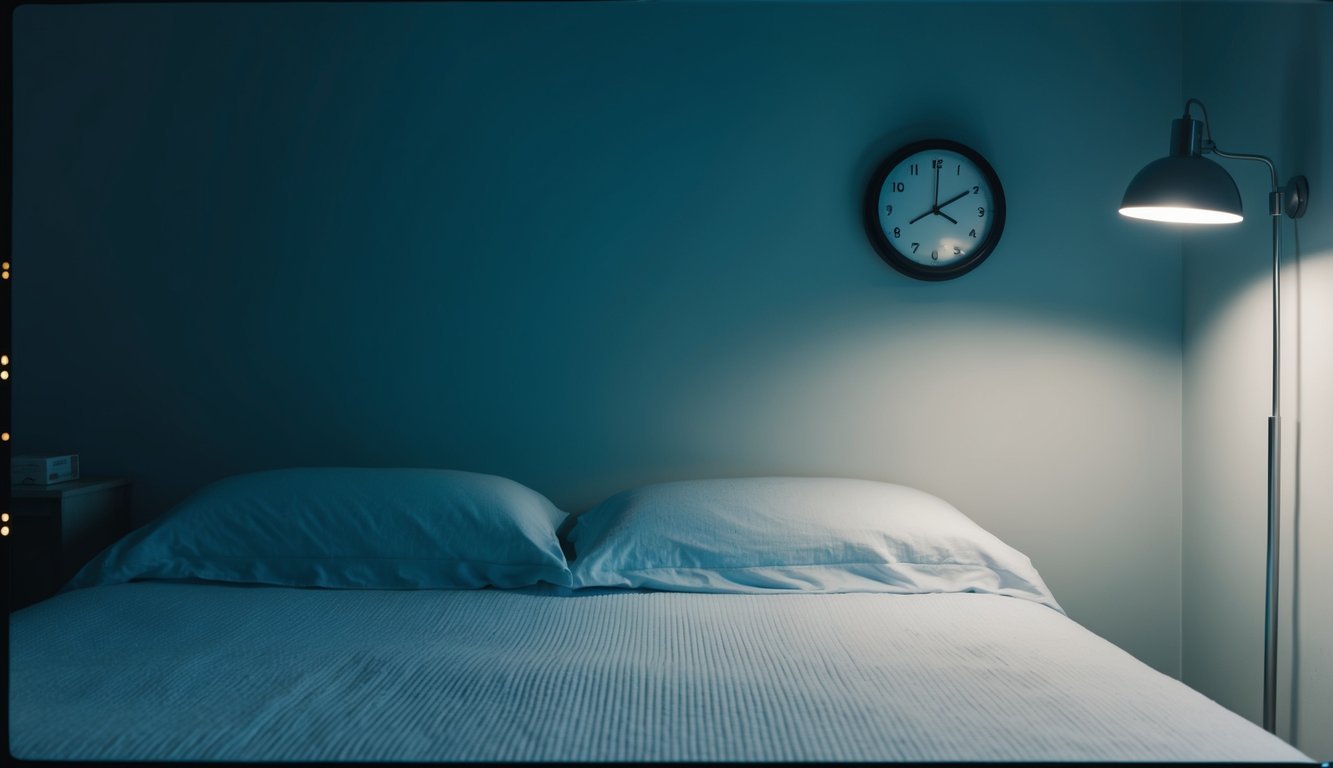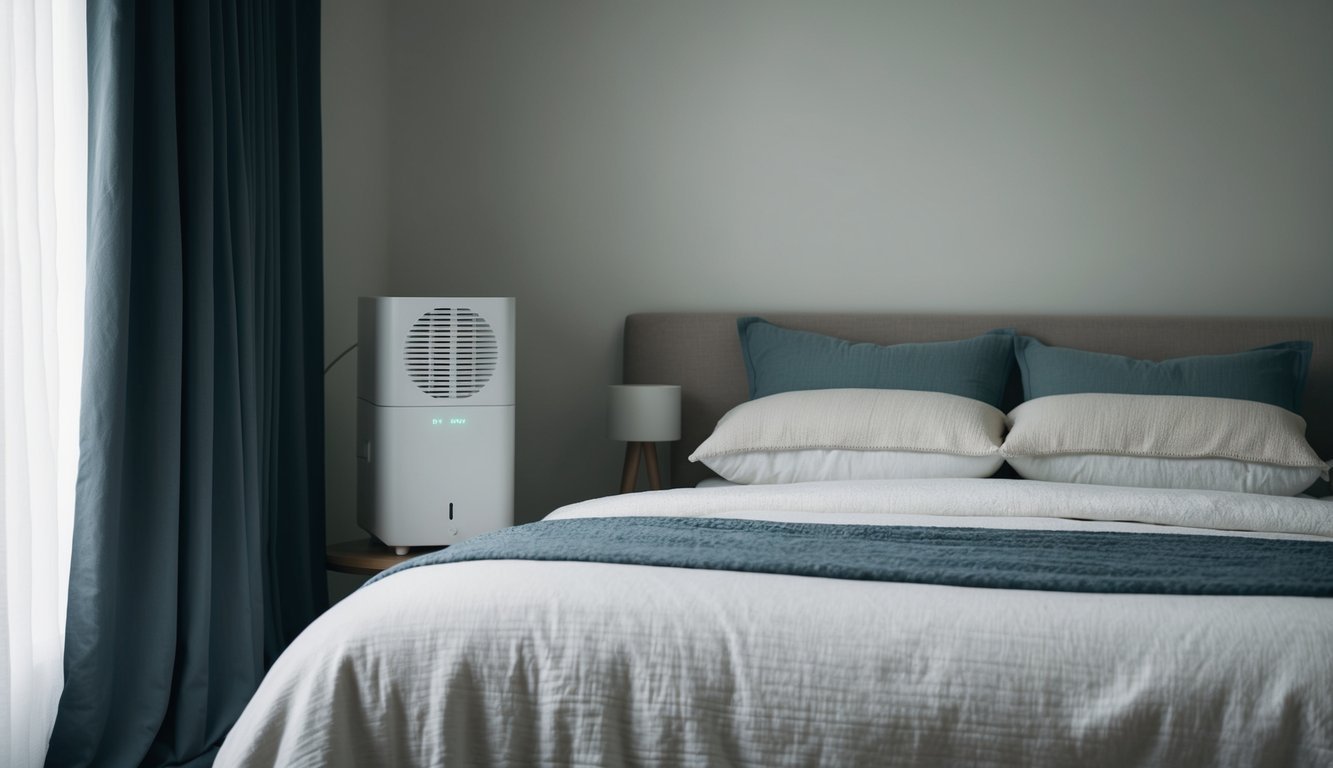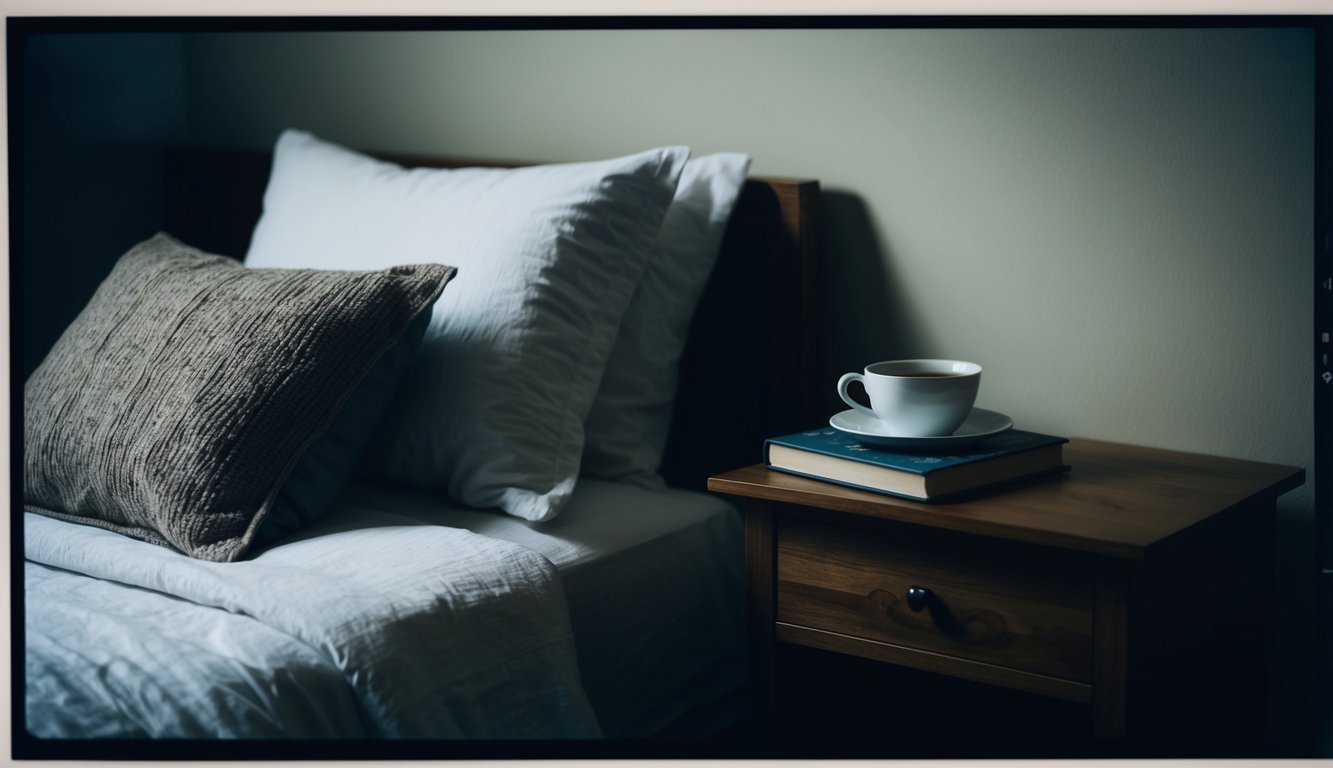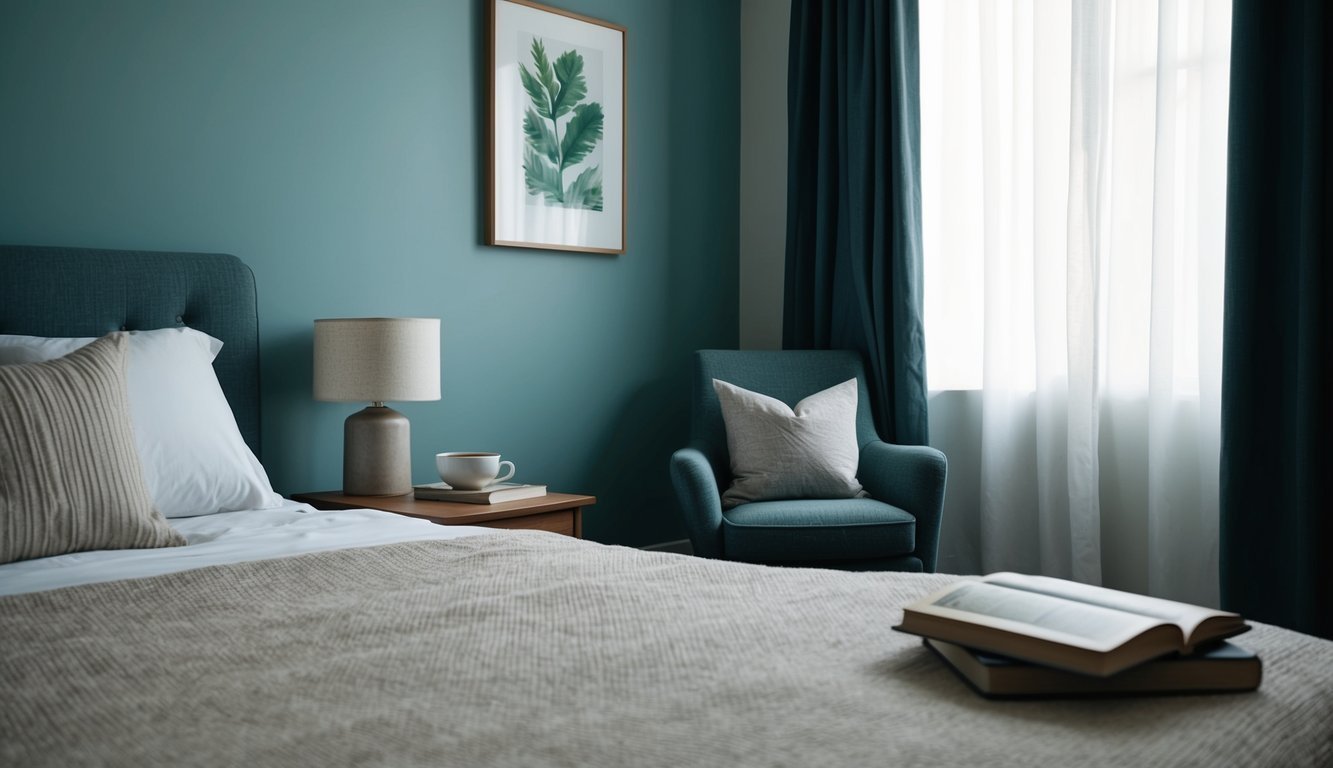PsychNewsDaily Publishers
100 Summit Drive
Burlington, MA, 01803
Telephone: (320) 349-2484
PsychNewsDaily Publishers
100 Summit Drive
Burlington, MA, 01803
Telephone: (320) 349-2484

Sleep hygiene encompasses the habits and practices that encourage restful, high-quality sleep. These routines are essential for sustaining optimal physical and mental health, as well as overall well-being.
Sleep is a complex biological mechanism crucial for human functioning. Our circadian rhythm, which acts as an internal 24-hour clock, manages sleep-wake cycles and is influenced by external factors such as light and darkness.
Throughout the sleep cycle, the brain undergoes various stages, including rapid eye movement (REM) and non-REM sleep. Each of these stages serves specific functions like memory consolidation and physical rejuvenation.
Quality sleep is imperative for cognitive performance, emotional stability, and physical health. It influences hormone production, immune response, and metabolism.
Insufficient sleep can lead to numerous health problems, such as diminished cognitive performance, mood fluctuations, and an increased risk of chronic illnesses.
Practicing good sleep hygiene involves several crucial elements:
Diet and physical activity are also vital. Steering clear of caffeine and heavy meals close to bedtime enhances sleep quality. In contrast, regular exercise supports better sleep, but vigorous workouts should be avoided near bedtime.
A pre-sleep routine sends signals to the body to get ready for rest. This may include calming activities like reading or enjoying a warm bath.

Creating a suitable sleep environment is essential for obtaining restorative and peaceful sleep. Several critical factors shape a sleep-friendly setting, including the choice of mattress and bedding, management of light and noise, as well as the proper temperature and ventilation in the bedroom.
Choosing an appropriate mattress is fundamental for optimal sleep quality. A supportive mattress ensures proper spinal alignment and minimizes pressure points, resulting in fewer sleep disruptions. Memory foam, innerspring, and hybrid mattresses each provide unique advantages tailored to various sleep preferences and body types.
The materials used in bedding also significantly influence sleep comfort. Natural fibers like cotton and linen are breathable and assist in regulating body temperature. Hypoallergenic materials are beneficial for those with allergies or sensitivities.
Pillows should offer adequate neck support to avoid discomfort and encourage proper alignment. The optimal pillow height and firmness differ based on sleeping position and personal preferences.
Light exposure heavily influences circadian rhythms. Darkening the bedroom aids melatonin production, the hormone that regulates sleep-wake cycles. Blackout curtains or eye masks are effective in blocking unwanted light.
Minimizing noise pollution is crucial for uninterrupted sleep. White noise machines or earplugs can help mask disruptive sounds. Some individuals may find that nature sounds or soft background music enhance relaxation and improve sleep quality.
Electronic gadgets emit blue light, which can hinder melatonin production. It is advisable to limit screen time prior to sleep or apply blue light filters on devices to reduce sleep disruption.
Maintaining an optimal bedroom temperature is key for quality sleep. Research indicates that a cooler sleep environment is associated with deeper sleep. Generally, the ideal temperature range for the majority falls between 60-67°F (15-19°C).
Proper ventilation maintains air quality and regulates humidity levels. High humidity can cause discomfort and encourage allergen proliferation, while low humidity could result in dry skin and respiratory issues.
Using breathable bedding materials and moisture-wicking sleepwear can help regulate body temperature throughout the night. A ceiling fan or portable fan can enhance air circulation and provide a cooling effect.

Establishing a consistent pre-sleep routine prepares both the body and mind for rest. A well-structured evening regimen fosters relaxation, alleviates stress, and enhances sleep quality.
The timing and content of evening meals have a significant impact on sleep quality. Eating dinner at least 2-3 hours prior to bedtime allows for proper digestion. A balanced diet rich in complex carbohydrates, lean proteins, and healthy fats promotes optimal sleep.
Certain foods can aid in promoting sleepiness. Foods high in tryptophan, like turkey, milk, and bananas, may help in falling asleep. Additionally, magnesium-rich foods such as nuts and seeds can facilitate relaxation.
Avoiding heavy, spicy, or fatty meals close to bedtime is essential, as these may cause discomfort and disturb sleep. It’s equally important to limit caffeine and alcohol consumption in the evening.
While staying hydrated is beneficial, excessive fluid intake before bed can lead to nighttime awakenings.
Integrating relaxation techniques into the pre-sleep routine can significantly mitigate stress and anxiety. Mindfulness practices effectively calm the mind and prepare it for sleep.
Deep breathing exercises, progressive muscle relaxation, and gentle stretching can relieve physical tension and signal the body to wind down.
Meditation serves as another valuable method for encouraging relaxation. Even a brief 10-minute practice can enhance sleep quality.
Creating a tranquil environment is also important. Dimming the lights, utilizing aromatherapy, or playing calming music can promote relaxation.
Avoiding screens before bed is critical, as blue light can disrupt melatonin production.
Regular physical activity improves sleep quality. Exercise helps balance circadian rhythms and can extend sleep duration.
Moderate-intensity aerobic exercises such as brisk walking or cycling are notably beneficial, while strength training also positively influences sleep when done consistently.
Timing is essential. Intense workouts before bed may be stimulatory, so it’s typically recommended to finish vigorous exercise at least 3 hours before sleep.
Gentle activities like yoga or light stretching can be included in the evening routine to foster relaxation and prepare the body for sleep.
Consistency in exercising plays a vital role in establishing a stable sleep-wake cycle.

Numerous substances can significantly affect the quality and duration of sleep. Effectively managing these substances is essential for maintaining healthy sleep patterns and overall well-being.
Caffeine, a common stimulant, can disturb sleep when ingested too close to bedtime as it blocks adenosine receptors which facilitate sleepiness. Limiting caffeine intake to morning hours can help minimize its impact on sleep.
Nicotine, present in cigarettes and e-cigarettes, is another stimulant impacting sleep quality. It can elevate heart rates and alertness, making it challenging to fall asleep. Smokers often experience lighter, less restorative sleep and may awake feeling fatigued.
Reducing or quitting these substances can enhance sleep quality. Gradual reduction may alleviate withdrawal symptoms and cravings.
Although alcohol might have sedative effects initially, it can seriously disrupt sleep patterns. While it may allow individuals to fall asleep faster, it can lead to fragmented, low-quality sleep as the night progresses. Frequent alcohol use can escalate into alcohol addiction and exacerbate sleep disorders.
Numerous medications can also influence sleep. Certain antidepressants, blood pressure medications, and corticosteroids may induce insomnia as a side effect, while specific antihistamines and pain relievers can cause drowsiness.
Consulting with a healthcare professional regarding medication side effects is vital. They can provide guidance on timing changes or alternative treatments to reduce sleep disturbances.
Melatonin, a hormone produced naturally in the body, is vital for regulating sleep-wake cycles. Melatonin supplements are often employed to address sleep problems, particularly those related to jet lag or shift work.
These supplements can assist in resetting the body’s internal clock and accelerating sleep onset. However, effectiveness varies among individuals. Starting with a low dosage and consulting a healthcare professional prior to use is essential.
Long-term use of melatonin may induce side effects such as headaches or daytime drowsiness. It is not recommended as a permanent solution for chronic insomnia or other sleep-related disorders.
Sleep disorders can have profound effects on daily life and overall health. Identifying symptoms and recognizing when to seek professional help are vital steps in effectively addressing these challenges.
Insomnia involves difficulty falling asleep or staying asleep, often resulting in waking up feeling unrefreshed.
Sleep apnea is characterized by breathing interruptions during sleep, typically accompanied by loud snoring. This disorder can lead to daytime sleepiness and heighten health risks.
Restless leg syndrome manifests as an overwhelming urge to move the legs, especially at night, severely disrupting sleep quality.
Narcolepsy is defined by sudden sleep attacks during the day, often occurring at inappropriate times, and can greatly influence daily activities and safety.
Persistent sleep difficulties extending beyond a few weeks should prompt medical consultation. Chronic insufficient sleep can lead to severe health complications, including high blood pressure and an increased risk of strokes.
Excessive daytime sleepiness is a significant indicator to seek professional help, particularly if it interferes with work or driving. This symptom may reflect an underlying sleep disorder that needs attention.
Severe snoring accompanied by gasping or choking sounds during sleep should also warrant medical evaluation, as these symptoms may indicate sleep apnea requiring medical intervention.
Unusual behaviors during sleep, such as sleepwalking or enacting dreams, should prompt a visit to a healthcare provider, as they may signal more complex sleep disorders needing specialized care.
“`